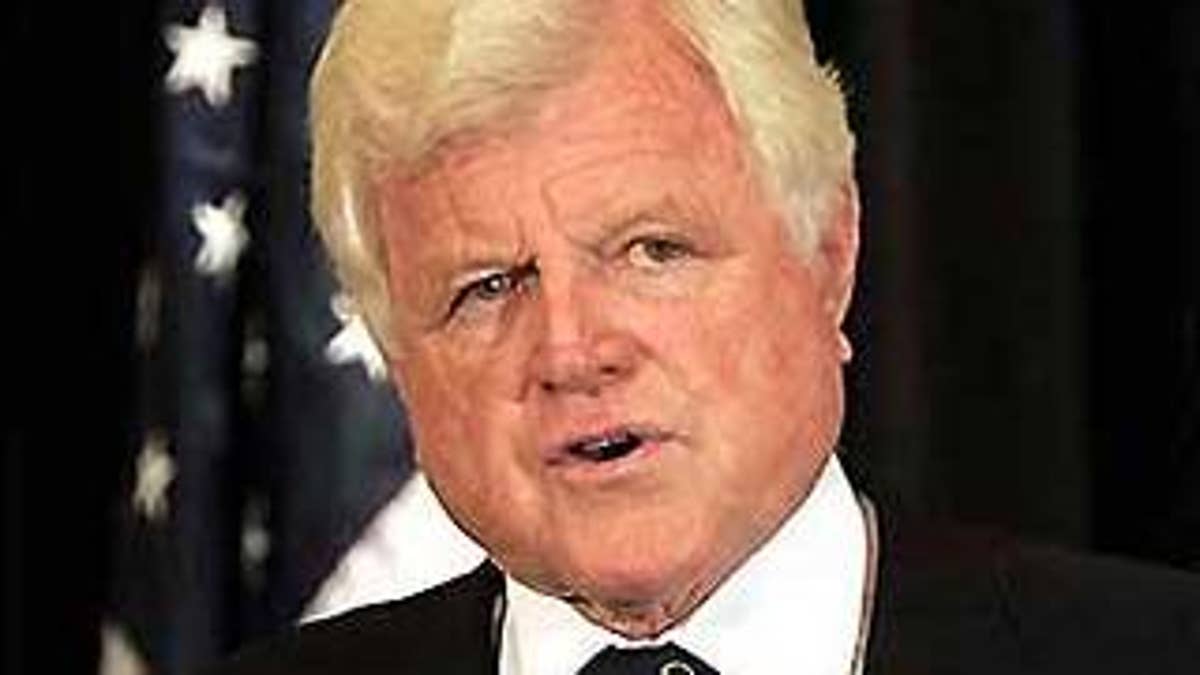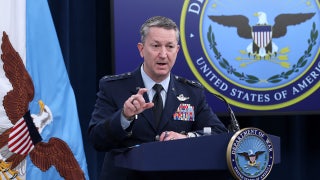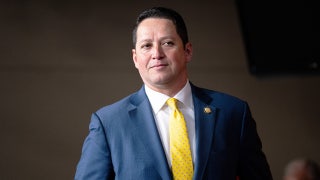
For more than four decades, Ted Kennedy has built a reputation as a "lion of the Senate" with all of his legislative accomplishments. But there's one noteworthy feather missing from his legislative cap: national health care.
In the twilight of his career and battling brain cancer, the Massachusetts Democrat now is making what could turn out to be his final push to get health care legislation across the finish line.
"He obviously sees this as the crowning achievement of his career," said Tom Mann, a congressional scholar at Brookings Institution. "But there's a lot of uncertainty as to whether anything substantial will pass this year."
In the coming months, Kennedy's committee on Health, Education, Labor and Pensions is expected to help craft legislation to expand health insurance coverage. Joining Kennedy in his effort will be former Senate Majority Leader Tom Daschle, whom President-elect Barack Obama nominated to be secretary of health and human services.
A spokeswoman for one of the architects of a national health care bill said that any legislation that emerges would be named after Kennedy.
"He wouldn't name it for himself, but the majority of the body working on the legislation would say he's devoted his life to it," said Jude McCartin, a spokeswoman for Sen. Jeff Bingaman, D-N.M., a member of Kennedy's committee. "Now that we're on the verge of doing something major, the naming of the legislation should reflect his longstanding involvement,"
But it is unclear if legislation can get passed this year, given the attention lawmakers must pay to the financial crisis.
"Sen. Bingaman thinks we have the immediate issues before us to take up the time of Congress," McCartin said, adding that a bill on health care reform could be introduced later in the year. "It takes a while to develop any significant legislation."
One Senate aide to Kennedy's committee said it's unlikely a bill would be introduced before the August recess.
"It's not going to happen at the speed that some are predicting, especially in light of the fact that Congress has to deal with the financial crisis first," said the aide, who asked not to be identified so he could speak freely about the committee's work.
"I can't see the Congress dual-tracking economic recovery and health care reform of the proportion that we're expecting," he said. "One's going to have to come first."
One of the obstacles in the way of a bill is competing political views on health care reform. Republicans want to lower costs and expand access through free-market capitalism. Democrats prefer government-sponsored health care.
"I think they all want to arrive pretty much at the same destination," said Craig Orfield, spokesman for Wyoming Sen. Michael Enzi, the ranking Republican on Kennedy's committee. "It's a question of the path they take and the tools they use."
Other Republicans on Kennedy's committee noted their concerns about the potential cost of health care reform as the country grapples with a deepening recession.
"Reforming our nation's health care system to provide access to quality and affordable health care for every American should be one of Congress's top priorities," Sen. Orrin Hatch, R-Utah, said in a statement to FOXNews.com
"However, with an almost trillion-dollar stimulus package being proposed by the Obama administration, we could potentially face a national deficit of more than $2 trillion this year," he continued.
"As we face what is arguably the toughest economic downturn since the Great Depression, we must move forward on health care reform in a pragmatic and fiscally responsible manner to safeguard not only taxpayers, but future generations who should not be saddle with a mountain of our debt."
Some political observers believe opponents of universal health care will cite the deepening recession and the hundreds of billions of dollars being spent to resuscitate the economy as reasons to delay action.
"There's no question people who don't want it done will argue that it needs to wait until other problems are resolved," said Kennedy biographer Adam Clymer. "But Kennedy doesn't have time to wait."
Kennedy was diagnosed with brain cancer last year. He returned to the Senate earlier this month to follow through on a promise he made at the Democratic National Convention: to deliver a health care plan that will cover all Americans.
To that end, Kennedy has surrendered his role on the Judiciary Committee so he can focus on health care. Political observers believe his diagnosis may help him get legislation passed.
"Is there an added urgency? Of course," Clymer said. "And that may have some impact on his colleagues."
Ellen-Marie Whelan, a senior health policy analyst at the Center for American Progress, said lawmakers will want to get legislation passed on Kennedy's watch.
"We don't know what his long-term prognosis is," she said. "It creates another reason to do it sooner than later,"
Aides to Kennedy's fellow committee members declined to discuss the impact Kennedy's condition could have on getting a bill passed.
Perhaps the biggest challenge Kennedy faces in getting national health care passed is trying to reform a system that benefits powerful groups.
"I think we have an inefficient system where a lot of people make money off the inefficient system," Whelan said.
"I don't see the economic crisis as the major impediment," Mann said. "It's always trying to change a system that's so entrenched. When changes are made, groups and entities feel threatened."
But even if Kennedy fails to get national health care passed, political observers say it won't damage his legacy.
"He's been an extraordinary legislator," Mann said. "Frankly, he will go down in history if he doesn't achieve another thing."
Clymer said Kennedy has achieved iconic status simply by surviving.
"He's the only Kennedy we've seen grow old. And he's had a remarkable impact on the lives of Americans in an enormous amount of things," he said, citing legislation to lower the voting age to 18, providing civil rights to disabled Americans and repeatedly increasing the minimum wage.
"This would be a crowning achievement if they could get a national health care bill passed," Clymer said. "But will he be forgotten if it's not? No."










































